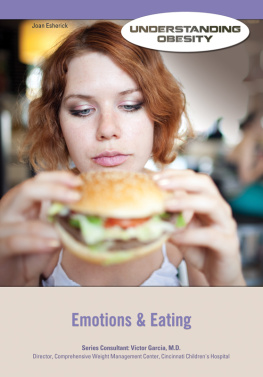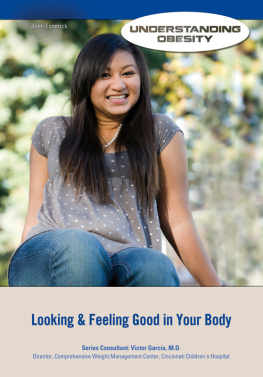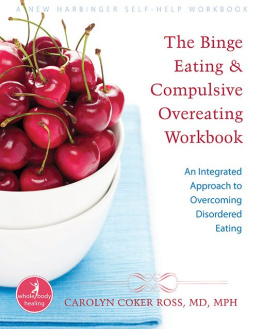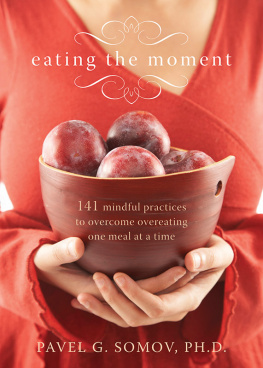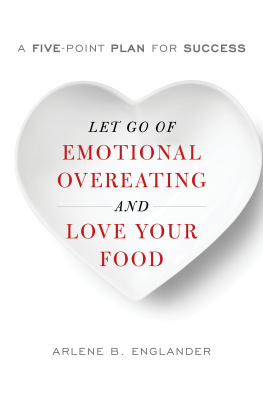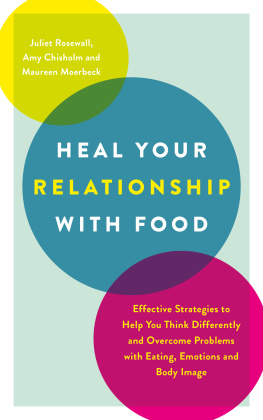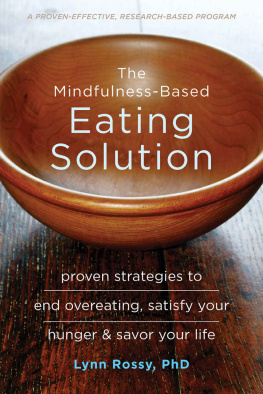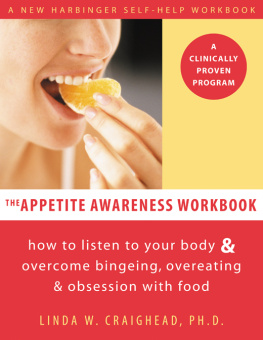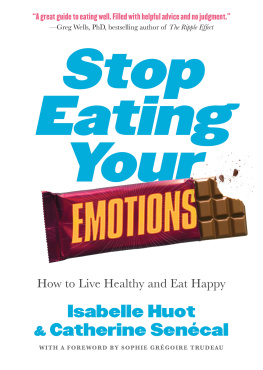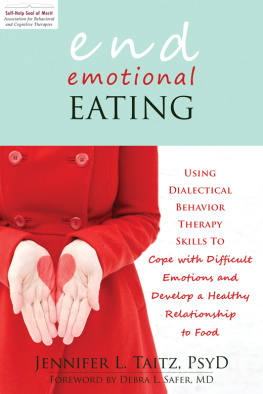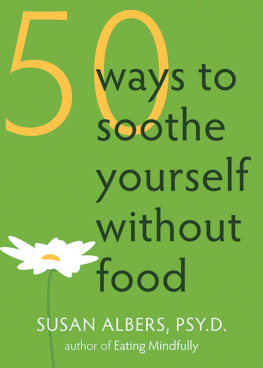Emotions & Eating
Understanding Obesity
Big Portions, Big Problems
Discrimination & Prejudice
Emotions & Eating
Exercise for Fitness & Weight Loss
Fast Food & the Obesity Epidemic
Health Issues Caused by Obesity
Looking & Feeling Good in Your Body
Nature & Nurture: The Causes of Obesity
No Quick Fix: Fad Diets & Weight-Loss Miracles
Surgery & Medicine for Weight Loss
Emotions & Eating
Joan Esherick
Mason Crest
Mason Crest
450 Parkway Drive, Suite D
Broomall, PA 19008
www.masoncrest.com
Copyright 2015 by Mason Crest, an imprint of National Highlights, Inc. All rights reserved. No part of this publication may be reproduced or transmitted in any form or by any means, electronic or mechanical, including photocopying, recording, taping, or any information storage and retrieval system, without permission from the publisher.
Printed in the United States of America.
Series ISBN: 978-1-4222-3056-5
ISBN: 978-1-4222-3059-6
ebook ISBN: 978-1-4222-8842-9
Cataloging-in-Publication Data on file with the Library of Congress.
Contents

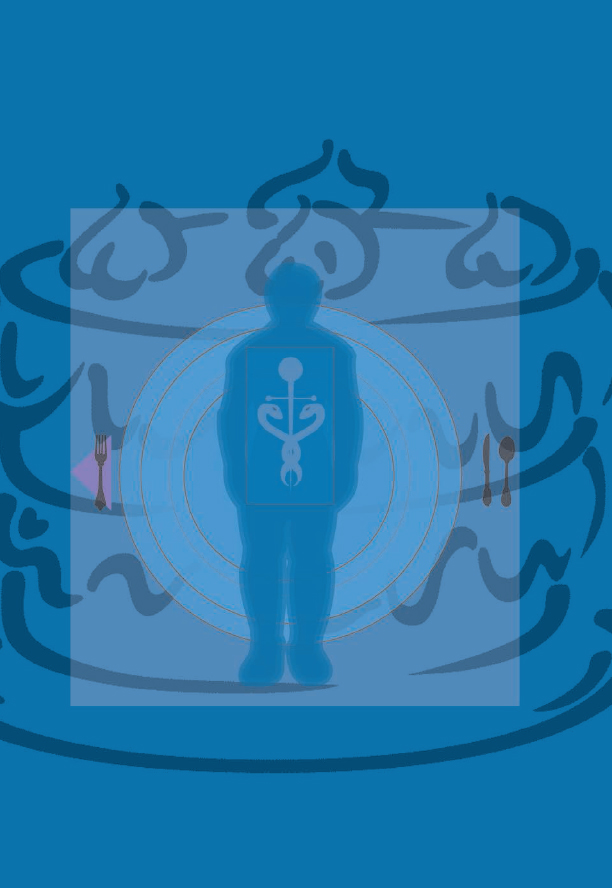
We as a society often reserve our harshest criticism for those conditions we understand the least. Such is the case with obesity. Obesity is a chronic and often-fatal disease that accounts for 300,000 deaths each year. It is second only to smoking as a cause of premature death in the United States. People suffering from obesity need understanding, support, and medical assistance. Yet what they often receive is scorn.
Today, children are the fastest growing segment of the obese population in the United States. This constitutes a public health crisis of enormous proportions. Living with childhood obesity affects self-esteem, employment, and attainment of higher education. But childhood obesity is much more than a social stigma. It has serious health consequences.
Childhood obesity increases the risk for poor health in adulthood and premature death. Depression, diabetes, asthma, gallstones, orthopedic diseases, and other obesity-related conditions are all on the rise in children. Over the last 20 years, more children are being diagnosed with type 2 diabetesa leading cause of preventable blindness, kidney failure, heart disease, stroke, and amputations. Obesity is undoubtedly the most pressing nutritional disorder among young people today.
This series is an excellent first step toward understanding the obesity crisis and profiling approaches for remedying it. If we are to reverse obesitys current trend, there must be family, community, and national objectives promoting healthy eating and exercise. As a nation, we must demand broad-based public-health initiatives to limit TV watching, curtail junk food advertising toward children, and promote physical activity. More than rhetoric, these need to be our rallying cry. Anything short of this will eventually fail, and within our lifetime obesity will become the leading cause of death in the United States if not in the world.
Victor F. Garcia, M.D.
Founder, Bariatric Surgery Center
Cincinnati Childrens Hospital Medical Center
Professor of Pediatrics and Surgery
School of Medicine
University of Cincinnati

Words to Understand

metabolism: The chemical reactions in the body that provide the energy and nutrients necessary to sustain life.
cellulite: Fatty deposits beneath the skin that give a lumpy appearance.
diabetes: A medical disorder resulting in insufficient production of insulin.
hypertension: High blood pressure.
osteoarthritis: A form of arthritis caused by wear and tear on the joints.
sleep apnea: A sleep disorder where someone momentarily stops breathing.
Emotional Eating:
Why Just Say No
Doesnt Work
May 1, 2003
Dear Diary,
I cant believe I did it again. I promised I wouldnt. I told myself I could handle it. I said Id get out of the house or go for a run or chew gum or do something else if I felt bad. This was supposed to be my chance to start over. You know, the first day toward a brand new me. So much for new beginnings.
I dont know what happened. The day started so well. I got up really early, went for a jog, showered, and even ate a good breakfast (just a cup of yogurt, some strawberries, and a muffin)all before I had to leave for school at 7:15 A.M. I felt so energetic; I even stayed awake through Ancient History, my third-period class. By fifth period I started to feel hungry, but I skipped lunch and felt good about resisting todays pizza special. Everything was going great. I even began to hope that maybe Id finally be able to beat this food thing once and for all. Maybe I didnt really have to be fat for the rest of my life. Maybe I could lose ten pounds by summer.
Then that Tony Penella had to go and say something: Hey Blubber Butt! Got some Jell-O to go with that jiggle? Right in front of the whole seventh-period class!
My face flushed, and I felt like dying of embarrassment, but I did my best to ignore him. That was my one small victory today. I ignored Tony and didnt cry. I really wanted to scream or punch him or something. But I didnt.
I was so angry, though. As soon as I got home I ate everything I could get my hands on: a whole package of chocolate chip cookies; a pint of tin roof sundae; two English muffins; celery and peanut butter; half of a bag of pretzels. I couldnt stop myself. I just stuffed and stuffed and stuffed myself until I felt so full I thought Id explode. At least there wasnt any candy in the house; I wouldve eaten that, too.
But I felt better; I wasnt so mad anymore. Eatings funny that way; its weird how it makes me feel better for a while. The good feelings dont last though; I just start to feel lousy about myself again. And fat. Always fat. How can food be my worst enemy and my best friend?
Whats wrong with me, Diary? Why cant I quit eating like this? I was okay until Tony opened his big mouth. Why do I eat when Im mad or sad? Why do I feel so guilty? Why am I so stupid, so disgusting, and so completely unable to control myself? Why am I so fat? Will I always be this way?
Yours forever,
Morgan
Morgan is a fourteen-year-old high school freshman. Thick, wavy, shoulder-length hair frames her clear complexion and pretty smile. Her hazel-green eyes sparkle with intelligence, humor, and authenticity. With broad shoulders and a muscular build, Morgan looks like an athletethe kind you might see playing softball or throwing discus at a track meet. Shes not rail thin like a marathoner, nor is she the image of size-one starvation chic like so many of her friends. But shes not grossly overweight either. Shes a solid, well-proportioned teenager who happens to have a larger frame than her petite peers. Yet, when she looks at herself all she sees is fat: offensive, obscene, disgusting fat.


Next page
